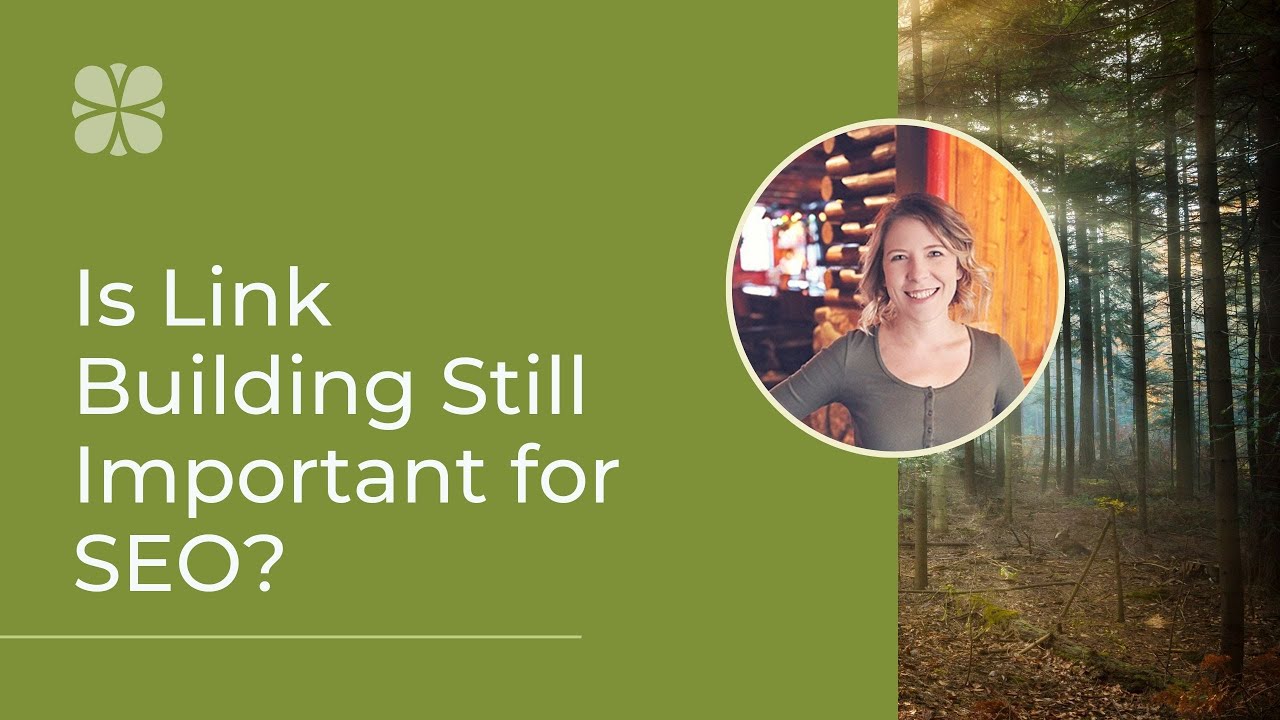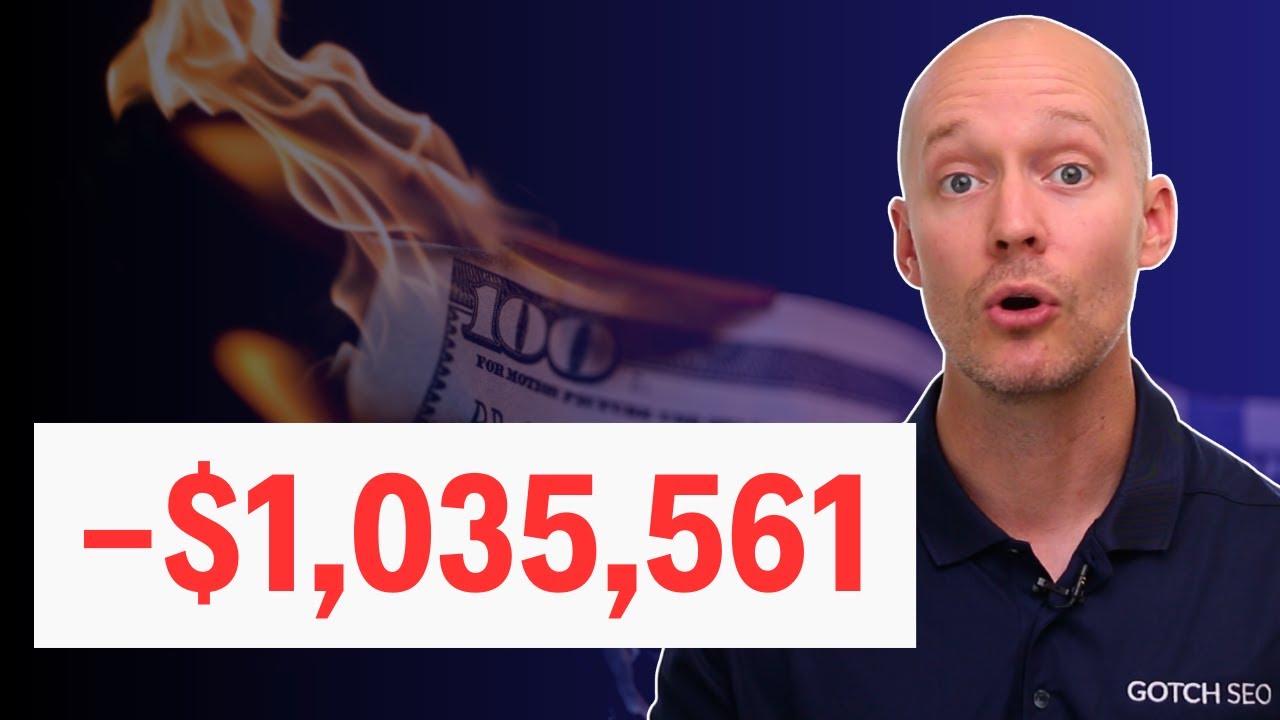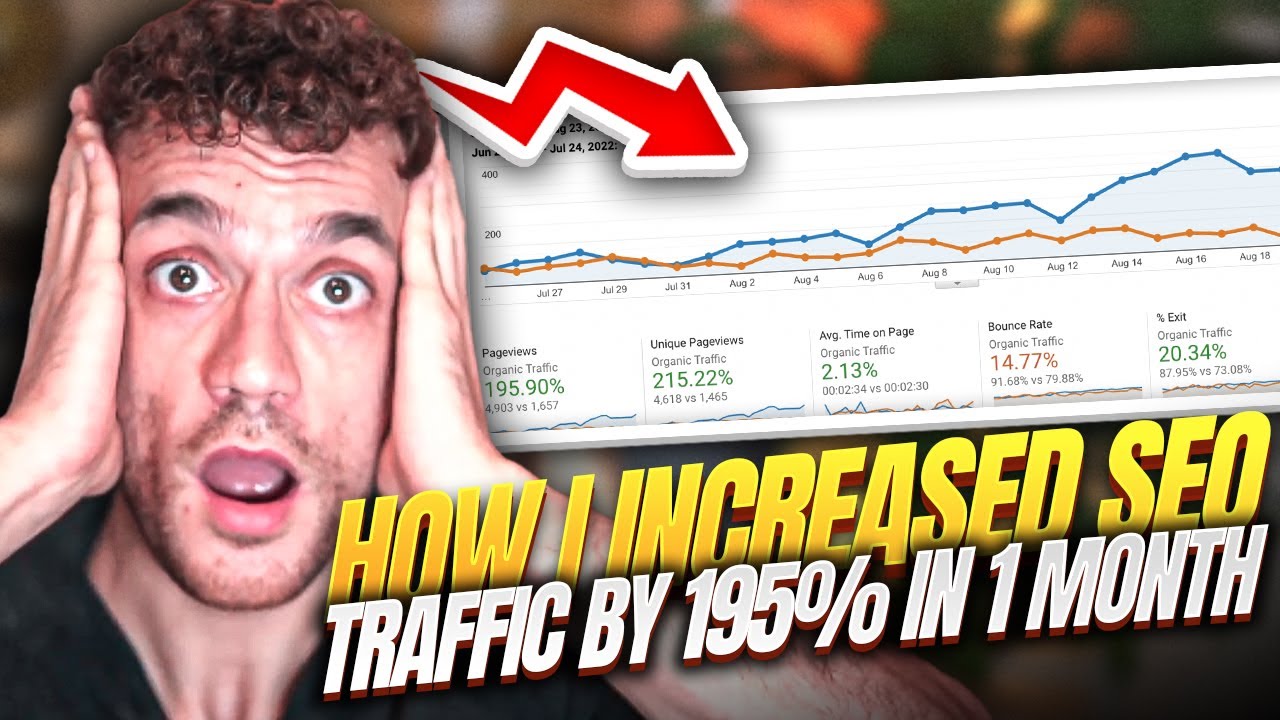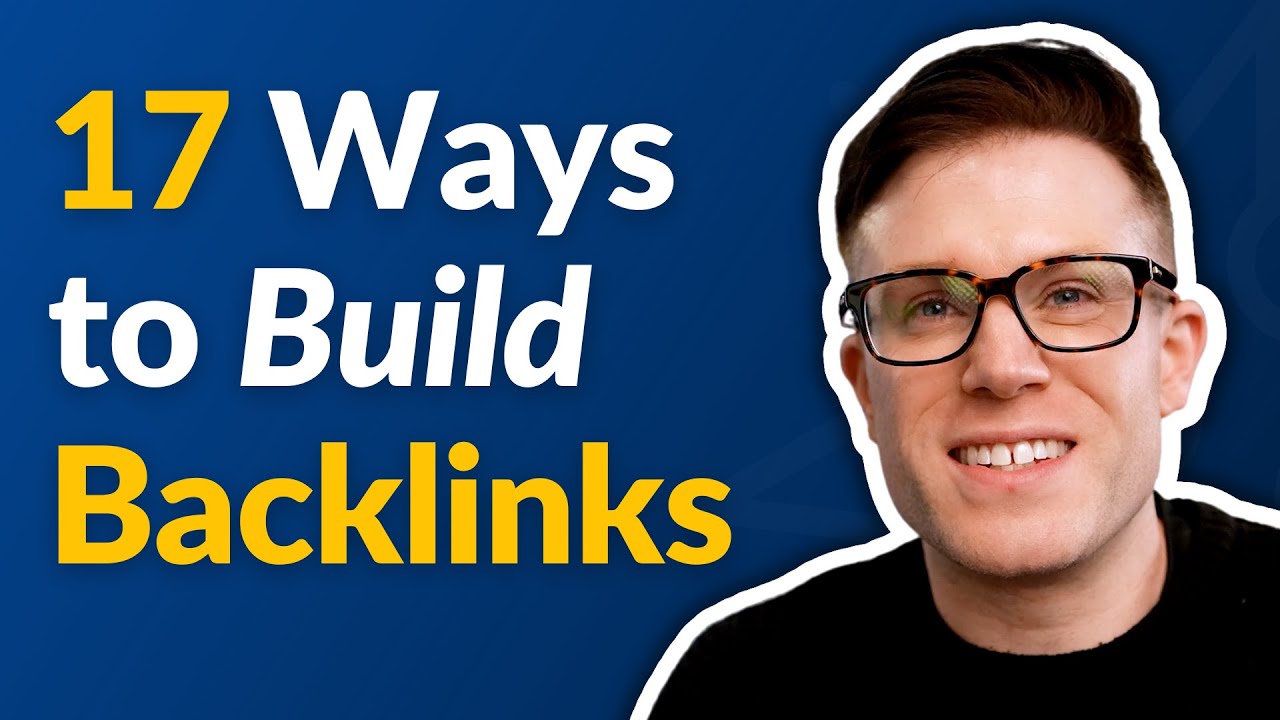Link buildingis an integral part of any successful SEO strategy, as it helps websites improve their online visibility, organic traffic, and search enginerankings. When executed correctly, link-building can significantly boost a website's authority and credibility in the eyes of search engines.
However, it's not uncommon for website owners and marketers to fall into the trap of making link-building mistakesthat can hinder their efforts and, in some cases, even lead to penalties from search engines. In this article, we will explore some of the most common link-building mistakes and provide valuable insights on how toavoid them. By understanding and rectifying these pitfalls, you can ensure that your link-building endeavors contribute positively to your website's overall SEOsuccess.
What Is Link Building In SEO?

What is Link Building and Why is it Important? - 3.1. SEO Course by Ahrefs
Link building in SEO(Search Engine Optimization) refers to the process of acquiring hyperlinks from other websites to your own website. These hyperlinks, also known as backlinks, play a crucial role in determining a website's authority, relevance, and popularity in the eyes of search engines.
Search engines, like Google, consider backlinks as "votes of confidence" for a website. When a reputable website links to your content, it signifies to search engines that your content is valuable and trustworthy. As a result, search engines may reward your website with higher rankings in their search results, making it more visible to users searching for related topics.
Link building is an essential aspect of SEObecause it not only drives direct referral traffic from the linked websites but also contributes significantly to a website's overall organic search traffic. However, it's important to note that not all backlinks are equal in value. The quality, relevance, and authority of the linking websites also influence the impact of the backlinks on your website's SEO.
To conduct effective link building, website owners and SEO professionals employ various strategies, such as creating valuable and shareable content, reaching out to other websites for guest posting opportunities, engaging in outreach to gain backlinks, and participating in industry-related discussions to naturally attract links.
Is Link Building Still Important For SEO?

Is Link Building Still Important for SEO?
Yes, link building is still crucial for SEO and remains an essential aspect of any effective search engine optimization strategy. Despite the constant evolution of search engine algorithms, backlinks continue to be a significant ranking factor for search engines like Google.
The importance of link-building lies in the way search engines perceive backlinks as signals of a website's authority, relevance, and trustworthiness. When reputable and authoritative websites link to your content, it sends a positive signal to search engines, indicating that your website is a valuable resource. As a result, search engines are more likely to rank your website higher in their search results, leading to increased organic traffic and visibility.
However, it's important to emphasize that the quality of backlinks matters more than sheer quantity. Search engines have become more sophisticated in evaluating the context and relevance of backlinks. Obtaining links from reputable and relevant websites within your niche or industry is more valuable than accumulating numerous low-quality backlinks.
While other SEO elements, such as content quality, user experience, and on-page optimization, also play critical roles, link building continues to be a fundamental pillar of SEO. Building a strong and diverse backlink profile helps establish your website's authority and credibility, leading to improved search engine rankings and a competitive edge in the online landscape.
Buying Links From Shady Sources

Should You Buy Backlinks for SEO? We Spent $1,000,000 to Find Out
Buying links from shady sources is a harmful link-building practice that can have severe consequences for your website's SEO and reputation. While it might seem like a quick and easy way to acquire backlinks, search engines, like Google, strictly discourage this practice and have measures in place to detect and penalize websites engaged in buying links. Here are some reasons why buying links from shady sources is a bad idea:
- Search Engine Penalties -Search engines, especially Google, are continuously updating their algorithms to identify and penalize websites that participate in link schemes or engage in the purchase of links. These penalties can result in a significant drop in search engine rankings or even complete removal from search results.
- Low-Quality Links - Shady sources often provide low-quality backlinks from irrelevant, spammy, or unrelated websites. These links not only fail to provide any real SEO value but can also harm your website's credibility and authority.
- Irrelevance and User Experience -Purchased links are often placed on websites unrelated to your niche or industry. This lack of relevance can confuse both search engines and users, leading to a negative impact on user experience and organic traffic.
- Unnatural Link Profile -An excessive number of paid links without a natural link profile can raise red flags for search engines. Search engines value organic link building, which involves earning links naturally through valuable content and genuine relationships with other websites.
- Long-Term Risk -Buying links might yield temporary benefits, but the risk of getting caught and penalized outweighs any short-term gains. Recovering from a search engine penalty can be a time-consuming and challenging process.
- Ethical Concerns -Buying links is considered an unethical practice and goes against the principles of fair competition and merit-based SEO. It undermines the credibility of legitimate websites that earn their backlinks through valuable content and positive user experiences.
Instead of buying links from shady sources, focus on ethical and effective link-building strategies:
- Create high-quality and valuable content that naturally attracts backlinks from reputable sources.
- Engage in outreach and relationship-building efforts with other websites in your industry or niche to earn authoritative links.
- Participate in guest posting opportunities on relevant and trustworthy websites to gain exposure and relevant backlinks.
- Utilize social mediaand content marketingto promote your content and attract organic links from interested audiences.
Ignoring Relevance And Context

Contextual Link Building: How I Increased My SEO Traffic By 195% In 1 Month
Ignoring relevance and context in link building is a significant mistake that can undermine the effectiveness of your SEO efforts and impact the overall user experience on your website. When building links, it's essential to prioritize the quality and context of the linking pages to ensure they align with the content and theme of your website. Here are some reasons why relevance and context are crucial in link building:
- Search Engine Ranking - Search engines assess the relevance of backlinks to determine the authority and credibility of your website. Links from relevant and authoritative sources are seen as more valuable and can positively impact your website's search engine rankings. On the other hand, links from irrelevant or unrelated websites may be considered spammy and have little to no impact on your SEO.
- User Experience - Relevant backlinks provide users with additional information and resources that complement the content they are reading. When users encounter relevant links, they are more likely to click on them, stay on your website longer, and find the information they are seeking. This improved user experience can lead to higher engagement metrics, such as lower bounce rates and increased time on-site, which can further enhance your SEO.
- Niche Authority - Linking to and receiving links from websites within your niche or industry helps establish your website's authority and expertise in that particular area. It signals to search engines that your content is relevant and valuable to users interested in that topic, which can boost your rankings for related search queries.
- Trust and Credibility - When users encounter relevant links on your website, they are more likely to trust the information and sources you are providing. Conversely, irrelevant links may raise doubts about the reliability and credibility of your content, potentially leading users to leave your site and seek information elsewhere.
- Avoiding Penalties - Ignoring relevance and context in link building can potentially lead to penalties from search engines. When search engines detect manipulative or irrelevant linking practices, they may penalize your website, causing it to drop in rankings or even be removed from search results.
To avoid neglecting relevance and context in link building, consider implementing the following strategies:
- Conduct thorough research to identify authoritative and relevant websites within your niche for potential link opportunities.
- Create high-quality, valuable, and targeted content that naturally attracts backlinks from relevant sources.
- Avoid participating in link schemes or engaging in spammy link practices, as they can harm your website's reputation and SEO efforts.
Over-Optimizing Anchor Text

Anchor Text SEO Guide - Mastering Offsite Optimization in 2024
Over-optimizing anchor text is a common link-building mistake that can have negative consequences on your website's SEO efforts. Anchor text is the visible, clickable text in a hyperlink, and it plays a crucial role in signaling to search engines the topic or content of the linked page. While anchor text optimization is essential for SEO, overdoing it can lead to search engine penalties and a drop in search rankings. Here's why over-optimizing anchor text should be avoided:
Search Engine Penalties
Search engines, especially Google, are vigilant about websites engaging in manipulative SEO practices, including over-optimization of anchor text. When they detect excessive use of exact-match keywords or unnatural anchor text patterns, they may penalize the website. This can result in a loss of search visibility and organic traffic.
Unnatural Link Profile
An unnatural link profile, characterized by a disproportionate amount of anchor text with exact-match keywords, can raise suspicion for search engines. A natural link profile would include a variety of anchor text types, such as branded terms, generic phrases, and even naked URLs. Over-optimization can make it seem like the links are not acquired organically, potentially leading to penalties.
Negative User Experience
Over-optimized anchor text can lead to a negative user experience. When users encounter repetitive or keyword-stuffed anchor text, it may appear spammy and untrustworthy. This can discourage users from clicking on the links and diminish the overall credibility of your content.
Loss Of Context
Effective anchor text should provide context to both users and search engines about the linked page's content. Over-optimizing anchor text may sacrifice context for the sake of keyword optimization, which can confuse search engines and users about the relevance of the linked content.
Branding And Recognition
Using only keyword-rich anchor text overlooks the opportunity to reinforce your brand and improve brand recognition. Branded anchor text, which includes your website's name or brand, is essential for building brand authority and trust among users.
To avoid the pitfalls of over-optimized anchor text, adopt a balanced approach to link building:
- Use a variety of anchor text types, including branded terms, generic phrases, and partial match keywords, to maintain a natural link profile.
- Ensure that the anchor text provides relevant context to the linked page and aligns with the content's topic.
- Focus on creating high-quality content that naturally attracts diverse backlinks, reducing the need for excessive anchor text optimization.
Prioritizing Quantity Over Quality

Link Building: 17 Ways to Build Good Quality Backlinks
Prioritizing quantity over quality in link building is a significant mistake that can diminish the effectiveness of your SEO efforts and potentially lead to negative consequences for your website. While it may be tempting to focus on acquiring a large number of backlinks quickly, the value of those links matters more than their sheer quantity. Here are some reasons why prioritizing quality over quantity is essential in link building:
Search Engine Penalty
Search engines, especially Google, are diligent in detecting and punishing websites that participate in spammy or deceptive link-building methods. If a large number of low-quality backlinks are detected, it can result in penalties, leading to a substantial decline in your website's search rankings.
Low-Quality Links Provide Little SEO Value
Links from low-quality or irrelevant websites may not pass much SEO value to your site. In contrast, backlinks from reputable and authoritative sources within your niche or industry carry more weight and can significantly impact your website's search engine rankings.
Relevance And User Experience
Low-quality backlinks from irrelevant sources can confuse both search engines and users about the content and purpose of your website. Prioritizing relevant and authoritative links enhances user experience, as visitors are more likely to find valuable information related to their interests.
Potential Toxic Backlinks
Focusing on quantity may lead to a higher likelihood of acquiring toxic backlinks from spammy or penalized websites. These toxic backlinks can harm your website's reputation and SEO efforts, as search engines might associate your site with low-quality sources.
Wasted Resources
Chasing after a high quantity of backlinks can consume valuable time and resources without yielding substantial benefits. Instead, investing in building relationships with reputable websites and producing high-quality content can lead to more valuable and sustainable backlinks.
To avoid the mistake of prioritizing quantity over quality in link building, consider the following strategies:
- Focus on creating high-quality, valuable, and shareable content that naturally attracts backlinks from reputable sources.
- Engage in outreach and relationship-building efforts with relevant websites and industry peers to earn authoritative links.
- Monitor your backlink profile regularly and disavow or remove any toxic or spammy links that may harm your website's SEO.
Neglecting Diversification In Link Building

The Only Link Building Tips You Need
Neglecting diversification in link building is a common oversight that can limit the potential impact of your SEO efforts and hinder your website's overall growth. Diversifying your link-building strategies helps to create a more natural and robust backlink profile, which is vital for long-term SEO success. Here are several reasons why diversification in link building is crucial:
Natural Link Profile
A diverse link profile reflects how backlinks naturally occur on the web. Search engines favor websites with a varied and organic link profile, as it suggests that the links are earned through valuable content and genuine relationships. Neglecting diversification may raise suspicion and make your link-building efforts appear manipulative.
Resilience Against Algorithm Updates
Search engine algorithms are continually evolving to provide users with the best possible results. Diversification ensures that your website is not overly reliant on a single link-building strategy. When search engine algorithms change, websites with a diversified link profile are better equipped to adapt and maintain their rankings.
Relevance And Audience Reach
Different link-building strategies allow you to target diverse audiences and communities. By reaching out to various sources, you can attract visitors from different platforms and industries, increasing your website's exposure and potential for new, relevant traffic.
Authority Building
Building links from a range of high-authority sources helps to establish your website's authority within your industry. Having backlinks from influential websites reinforces your expertise and positions your website as a valuable resource, both in the eyes of search engines and users.
Link Equity Distribution
Diversification ensures that link equity (the SEO value passed by a link) is distributed effectively across your website's pages. A well-structured internal linking strategy combined with diverse external backlinks helps to improve the rankings of specific pages and enhances your website's overall domain authority.
To avoid neglecting diversification in link building, consider implementing the following strategies:
- Create a link-building plan that incorporates multiple approaches, such as guest posting, content marketing, social media outreach, influencer collaborations, and resource link-building.
- Identify various target audiences and relevant websites within your industry to reach a broader range of potential link sources.
- Regularly monitor your backlink profile to ensure it remains diverse and balanced, disavowing or removing any toxic or irrelevant links.
People Also Ask
How Can I Recover From A Google Penalty Due To Bad Link Building?
Recovering from a Google penalty requires a systematic approach. First, identify the problematic links using tools like Google Search Consoleor third-party backlink analysistools. Then, make efforts to remove or disavow toxic backlinks by contacting webmasters or using Google's disavow tool. After cleaning up your backlink profile, focus on building high-quality, relevant, and natural links through legitimate link-building strategies.
Are Nofollow Links Valuable For SEO?
While nofollow linksdo not directly pass SEO value, they are still valuable for SEO and link building. Nofollow links can drive traffic to your website, increase brand visibility, and diversify your backlink profile, which is essential for a natural and balanced link portfolio.
How Do I Disavow Bad Backlinks?
o disavow bad backlinks, create a list of toxic or spammy links that you want to disavow. Then, use Google's Disavow Tool in Google Search Console to submit a disavow file containing those URLs. The disavow file signals to Google that you want to disassociate your website from those harmful links.
Can Internal Linking Improve SEO?
Yes, internal linking can improve SEO. Internal links help search engines understand the structure and hierarchyof your website's content. They also distribute link equity across different pages, boosting the rankings of important pages. Additionally, internal links improve user navigation, leading to better user experience and engagement, which can positively impact your SEO efforts.
Conclusion
Link building is a powerful SEO strategy that can elevate your website's online presence and drive organic traffic when done correctly. However, it is essential to tread carefully and avoid common link-building mistakes that can have adverse effects on your website's rankings and reputation. Upholding proper outreach etiquette and consistently creating high-quality content will enhance your link-building success.
By continuously monitoring your backlink profile and making necessary adjustments, you can stay on top of your link-building efforts and maintain a strong online presence. The journey toward building a robust link profile might require time and effort, but the rewards of increased organic traffic, higher search engine rankings, and improved domain authority will undoubtedly make it all worthwhile. Avoiding these link-building mistakes and implementing best practices will set your website on the path to sustainable growth and success in the digital landscape.